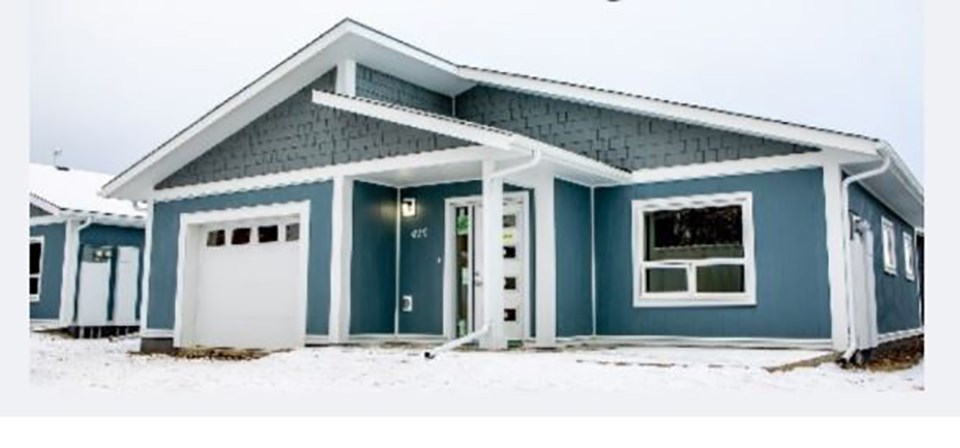Opening a new housing complex in a global pandemic wasn't part of the plan when AiMHi - the Prince George Association for Community Living - finally settled on what to do with a piece of property it had owned for many years.
However, the non-profit organization went ahead with building five small homes to add to its housing services.
"And now, there are some very excited people moving into those homes this month," said Melinda Heidsma, executive director, AiMHi, in a provincial news release.
It was a big concern at AiMHi that people with developmental disabilities were starting to show up in the region's homeless population in recent years. The preparatory work for the housing project had all been done by the time COVID-19 struck, and 2020 had already been settled on as a good year to make it happen so the project continued.
AiMHi is one of B.C.'s largest providers of "community living" services. In B.C., these date back more than 60 years to a major shift in thinking around how best to support people with developmental disabilities.
Big B.C. institutions like Woodlands and Tranquille, where people once had to live far from their families and home communities, were phased out, replaced by a new community-based system of support.
"People deserve to have safe, secure homes, and AiMHi's new housing complex provides security for people with developmental disabilities and their families during these challenging times," said Dan Coulter, Parliamentary Secretary for Accessibility in the news release.
"The services and support AiMHi continues to deliver are a reflection of the organization's deep commitment to the community it serves."
Housing is a key part of that support. At AiMHi, housing options span the range of 24-hour staffed homes to independent living, but more is always needed.
"I think we'll be doing do a lot more in housing in the future," Heidsma said. "Five years ago, you never saw people in the community-living sector becoming homeless, with no place to go but a shelter. That's something that simply can't be allowed to happen for people with developmental disabilities."
AiMHi supports 100 people in staffed homes, 150 who live on their own or with family members, a dozen who live in a cluster of supported apartments and 50 home shares.
Home shares are a newer model in which people in the community share their homes and lives with people matched to them.
Home share providers often found themselves having to step up that level of support during the pandemic, Heidsma noted. Many of their tenants suddenly found themselves out of work or shut out of their day programs due to provincial social-distancing requirements.
"It has been a challenging year for sure, but many good things have happened, too," Heidsma said. "There has been a tremendous amount of support in the community - lots of iPads donated for the people we serve so they can get into Zoom learning and crafts, grants to support people with food baskets. It's been pretty magnificent to watch, really."
AiMHi has 480 employees and is primarily funded by Community Living BC, with additional support from BC Housing and the Ministry of Children and Family Development. But community support across all programs is so important, Heidsma said. That could be via donations, volunteering at events or just helping to create an inclusive and welcoming community.
Heidsma is particularly proud AiMHi was able to go ahead with plans to get its WorkSafeBC Certificate of Recognition (COR) in spite of the pandemic, after WorkSafe agreed to do most of the certification virtually.
She said there aren't many other community social service agencies in B.C. that have received COR certification. COR is a voluntary program helping employers create an occupational health and management system that goes beyond legal requirements.
"There's never a bad time to emphasize health and safety," Heidsma said. "WorkSafeBC was pretty excited as well to see that the certification can be done virtually."
One of the big surprises from the year of COVID-19 now has AiMHi weighing whether to adopt some pandemic measures permanently.
"At the beginning, it was a shock and a struggle, and people were up against each other trying to get safety supplies," Heidsma said. "But one of the things we've learned a year on is that hardly anyone we serve in our homes has been sick this winter. We're very tempted to look at leaving masks and the sanitizing routines in place. It kept people healthy!"
The B.C. government has proclaimed March as Community Social Services Awareness Month in appreciation of the more than 42,000 people who work in the community social services sector. They provide help and assistance to those who need it most.



